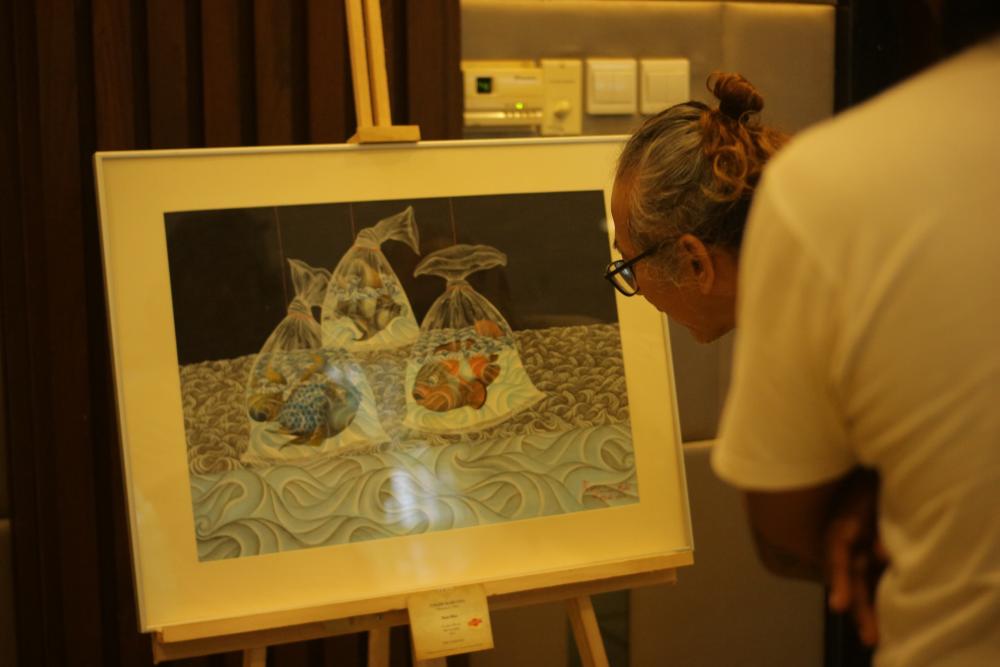Luwak Coffee tasting experience in Bali

DENPASAR, NETIZENBALI.com - Kopi luwak is a type of coffee that is made from the beans that have been eaten and digested by the Asian palm civet, a small mammal native to Southeast Asia.
The civets select the ripest and best coffee cherries, and their digestive enzymes alter the flavor and aroma of the beans. The beans are then collected, cleaned, roasted, and ground to make kopi luwak, which is said to be smoother, richer, and less bitter than regular coffee.
Bali is one of the places where you can find kopi luwak, as the island has many coffee plantations that grow various types of coffee beans, such as arabica, robusta, and liberica.

Some of these plantations also offer tours where you can learn more about the production process of kopi luwak, see the civets in their natural habitat or in cages, and taste different kinds of coffee and tea.

Kopi Luwak Vs Regular Coffee
Kopi luwak and regular coffee are both made from coffee beans, but they differ in the way they are processed.
Kopi luwak is made from beans that have been eaten and digested by the Asian palm civet, a small mammal that lives in Southeast Asia. The civets select the ripest and best coffee cherries, and their digestive enzymes alter the flavor and aroma of the beans. The beans are then collected, cleaned, roasted, and ground to make kopi luwak
.
Regular coffee is made from beans that have not been eaten by any animal. The beans are harvested from the coffee plants, dried, roasted, and ground to make regular coffee. The flavor and aroma of regular coffee depend on the type of bean, the roasting method, and the brewing technique.
Some of the differences between kopi luwak and regular coffee are:
Flavor: Kopi luwak is said to be smoother, richer, and less bitter than regular coffee. It has a distinctly earthy and complex flavor profile, though it may vary depending on the origin and quality of the beans. Regular coffee has a more diverse range of flavors, from fruity to nutty to chocolaty, depending on the bean variety and roast level.
Aroma: Kopi luwak has a lighter aroma than regular coffee, as some of the volatile compounds that contribute to the smell of coffee are reduced or eliminated by the civet’s digestion. Regular coffee has a stronger and more distinctive aroma, which can be enhanced by grinding and brewing methods.
Acidity: Kopi luwak has a higher acidity than regular coffee, as the civet’s digestion increases the levels of citric acid, malic acid, and inositol in the beans. These acids give kopi luwak a more sour and tangy taste. Regular coffee has a lower acidity, which can be influenced by the roasting degree and the water quality.
Caffeine: Kopi luwak has a lower caffeine content than regular coffee, as some of the caffeine is metabolized by the civet’s liver. This makes kopi luwak less stimulating and more suitable for people who are sensitive to caffeine. Regular coffee has a higher caffeine content, which can vary depending on the bean type and brewing method.
Price: Kopi luwak is one of the most expensive coffees in the world, with retail prices reaching up to US$1,300 per kilogram for wild-collected beans. This is because kopi luwak is very rare and difficult to produce, as it requires wild civets to select and digest the beans naturally. Regular coffee is much cheaper and more widely available, with prices ranging from US$10 to US$100 per kilogram depending on the quality and origin of the beans.
We hope this helps you learn more about kopi luwak destination in Bali. (NB)








Related Articles
- Pesona Rupa Puitika pada Pameran Bali Art Lounge
- "Menyala Wii", The Viral Phenomenon Enchanting Bali, the Island of Paradise
- Forum Pemred SMSI Dukung Upaya Pemerintahan Prabowo Subianto Atasi Kebocoran Pajak Rp 300 Triliun
- Kolaborasi Polda Bali dan Relawan Politik, Menuju Pilkada Bali yang Damai dan Bermartabat
- Ketua SMSI Bali Soroti Pelanggaran Etik Jurnalistik Terkait Diskominfo Tabanan Laporkan 17 Media Online ke Dewan Pers